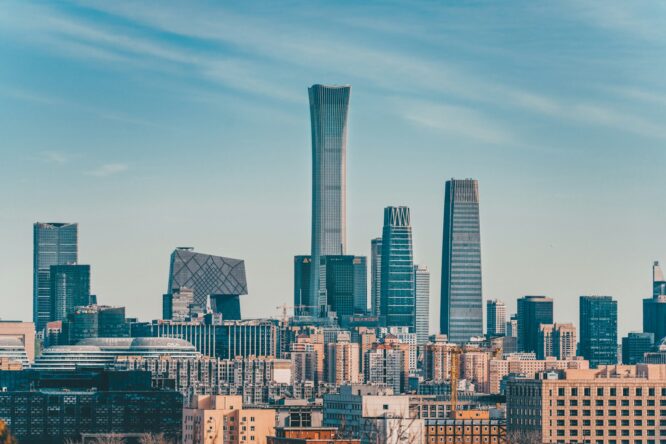Healthy relationships should make you feel more like yourself, not less.

The problem is that sometimes, even when things seem exciting or safe on the surface, small warning signs get brushed aside. This is especially true in queer relationships, where finding connection can feel so precious that it’s tempting to ignore the cracks. Here are some of the most overlooked red flags that can sneak in quietly but are worth paying attention to, no matter how strong the chemistry feels at first.
1. They make subtle jokes about your identity that don’t feel right.
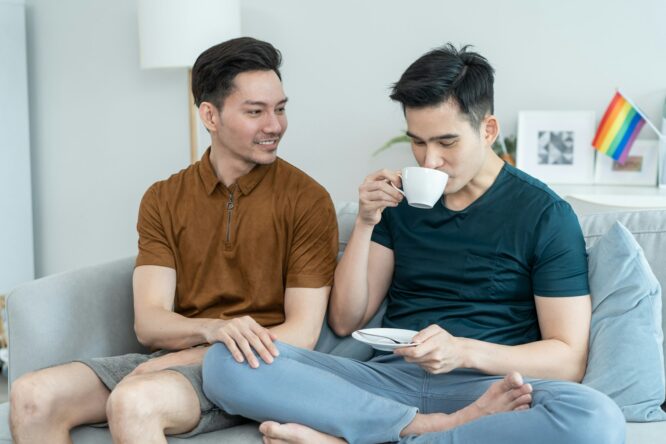
Teasing about labels, pronouns, or parts of your identity you take seriously might be brushed off as “just a joke,” but if it stings, it matters. Micro-digs build up over time and destroy trust, even if they’re framed as playful. Respecting your identity fully isn’t optional. A partner who truly cares will make space for every part of who you are, without needing to get a laugh at your expense to feel more comfortable or “edgy.”
2. They expect you to educate them, but don’t do the work themselves.

It’s one thing to ask questions with genuine curiosity. It’s another to make you the unpaid, on-call teacher for all things LGBTQIA+ life, culture, and politics without lifting a finger to learn on their own. Partners who care will show initiative. They’ll Google, read, listen, and grow without putting the emotional burden of their education entirely on your shoulders every step of the way.
3. They rush into merging your lives too fast.

When connection feels magical, it’s easy to get swept up, but if someone’s pushing for U-Haul-level commitment before you’ve even navigated a few real-life challenges together, it can be a sign of deeper instability. Healthy relationships build momentum naturally. If someone’s pressing fast-forward too hard, it’s worth wondering what they’re trying to skip over, or what parts of themselves they don’t want you to see yet.
4. They downplay issues you face that they don’t experience.

If you bring up discrimination, family struggles, or mental health battles tied to your identity, and they brush it off with “It’s not that bad” or “You’re overreacting,” that’s a red flag wrapped in minimisation. You deserve a partner who listens to the full reality of your life without needing it to be tidy, convenient, or palatable. Your struggles are real, even if they’ve never lived them personally.
5. They treat you differently in public than in private.

It’s one thing to want privacy. It’s another to act proud of you at home but uncomfortable, dismissive, or weirdly distant when other people are around. That split is painful as time goes on, even if it’s subtle at first. Partners who are truly safe show up consistently. You deserve someone who is proud of you and of the relationship, without it depending on who’s watching or what might feel socially “easier.”
6. They use queer culture as a punchline, but don’t actually support the community.
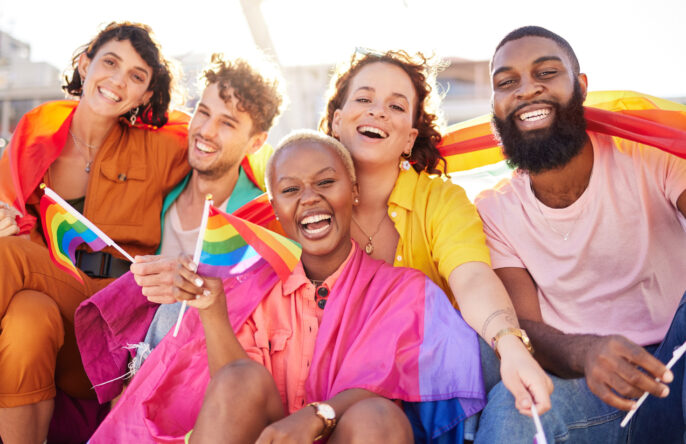
Dropping slang, referencing memes, or vibing with the culture is easy. Actually showing up for rights, representation, and respect is where true allyship or belonging shows itself. If they’re happy to enjoy the fun parts but disengage when it’s time to do real emotional or political work, it shows their commitment is shallow. That’s worth paying attention to early on.
7. They pressure you to “prove” parts of your identity.

No one should demand receipts for how “queer enough,” “trans enough,” “butch enough,” or “femme enough” you are. Policing someone’s identity, even subtly, is a toxic power move, not genuine curiosity. Healthy partners celebrate your expression, not demand you justify it. Feeling free to exist without constant proof or validation is the bare minimum of respect you should expect.
8. They guilt-trip you for wanting space or boundaries.

Needing alone time, space from community events, or firm boundaries around certain topics doesn’t make you distant or cold. It makes you human. Partners who shame you for needing breathers are waving a huge red flag. Healthy love makes room for individuality. A partner who sees your needs as an attack is showing that they care more about their comfort than your wellbeing, and that’s a dangerous imbalance.
9. They use queerness as an excuse for bad behaviour.
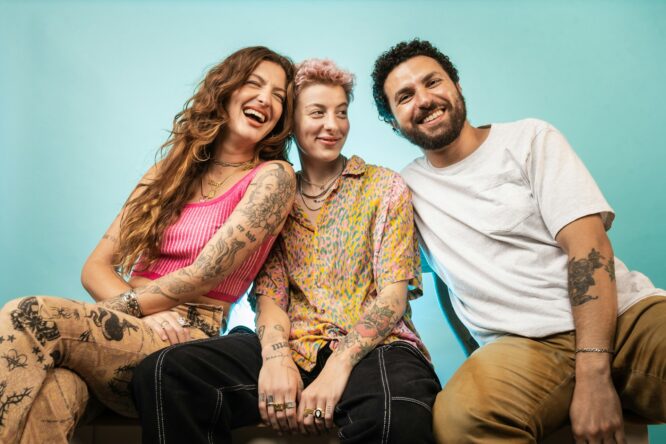
“That’s just how lesbians fight.” “Gay relationships are just more dramatic.” “This is normal for us.” No, unhealthy patterns aren’t magically okay because you’re not straight. Abuse, manipulation, and toxicity have no sexual orientation. If someone tries to normalise bad behaviour by hiding behind queer identity, that’s not love, it’s avoidance. You deserve respect, safety, and peace just like anyone else, full stop.
10. They seem threatened by your friendships, especially with exes.

Queer circles can be small, and healthy relationships often mean navigating layered friendships, including old flames. If they’re hyper-jealous, controlling, or suspicious without reason, it’s more about their insecurity than your trustworthiness. It’s fair to want open conversations about boundaries. But constant suspicion or demands to cut people off are massive red flags disguised as “just caring a lot.”
11. They invalidate your gender or orientation when they’re upset.

Weaponising your identity in the heat of an argument—misgendering, calling you a “fake” bisexual, or dismissing your journey—is a brutal violation of trust, no matter how angry they are. Fighting fair means sticking to the issue, not lashing out in ways that target your deepest vulnerabilities. Once that line is crossed, rebuilding safety gets incredibly hard, if not impossible.
12. They expect you to fit a certain role in the relationship.
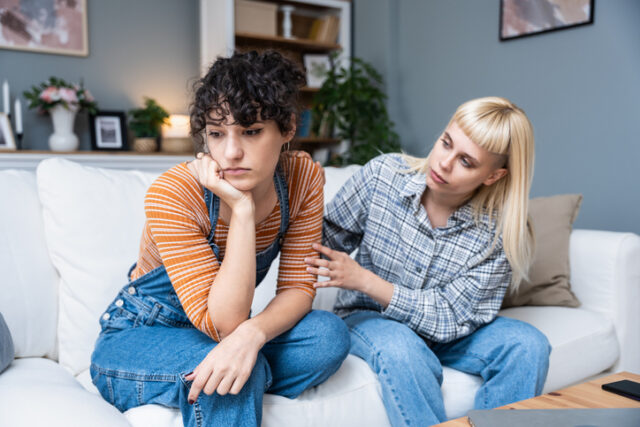
If there’s rigid pressure to act a certain way based on outdated ideas about who’s “supposed” to be more masculine, feminine, dominant, nurturing, etc., it’s a recipe for resentment and disconnection. Queer love should be about rewriting the rules to fit the people involved, not squeezing each other into limiting boxes. If someone can’t love you outside of a script, they’re not really loving you at all.
13. They belittle parts of the queer community they don’t “get.”

Mocking bisexuals, nonbinary people, asexual people, or anyone who doesn’t fit a narrow vision of queerness isn’t edgy. It’s exclusionary and toxic. Gatekeeping within the community causes real harm. If they can’t respect the full spectrum of identities, chances are they’ll have a hard time respecting the full spectrum of you, too. Bigotry in any direction doesn’t magically become okay inside queer spaces.
14. They make everything about how oppressed they are.

Yes, oppression is real, and it deserves attention. However, when someone constantly centres their own struggles while dismissing yours, especially if you experience multiple forms of marginalisation, it’s a big warning sign. Healthy love means sharing space for each other’s pain, not treating your relationship like a competition for who has it harder. Mutual empathy matters more than performative suffering points.
15. They use “We’re both marginalised” to excuse unhealthy power dynamics.

Just because two people are part of marginalised groups doesn’t mean power struggles magically disappear. If someone uses shared oppression as a way to dodge accountability for mistreatment, it’s still a toxic dynamic. You deserve a relationship where both people’s voices, needs, and autonomy are respected equally, not buried under excuses that try to justify bad behaviour because “we’re both hurting.”




